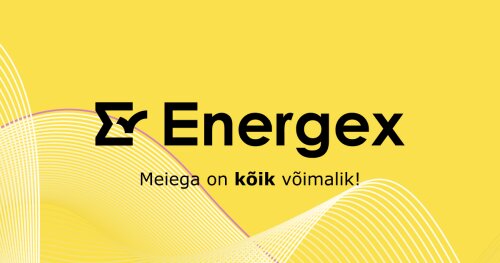Best Renewable & Alternative Energy Lawyers in Tallinn
Share your needs with us, get contacted by law firms.
Free. Takes 2 min.
List of the best lawyers in Tallinn, Estonia
About Renewable & Alternative Energy Law in Tallinn, Estonia
Tallinn, Estonia is recognized for its progressive approach to energy sustainability. As the capital city, Tallinn is at the forefront of Estonia’s transition away from traditional fossil fuels toward renewable and alternative energy sources such as wind, solar, and bioenergy. The legal landscape surrounding renewable energy in Estonia is shaped by both national legislation and European Union directives, aiming to support the development, production, and consumption of cleaner energy while ensuring energy security and environmental protection.
Estonia's energy laws are designed to incentivize private and public investments in renewable energy projects, streamline permit processes, and support innovative solutions in the energy sector. As the city continues to invest in and expand its energy infrastructure, individuals and businesses considering renewable energy projects in Tallinn must navigate a complex regulatory environment.
Why You May Need a Lawyer
Engaging in renewable and alternative energy projects in Tallinn can often require specialized legal assistance. Common situations where hiring a lawyer is recommended include:
- Planning and developing wind, solar, or bioenergy projects and ensuring compliance with zoning and environmental regulations
- Negotiating land use, grid connection, and power purchase agreements
- Securing government permits, licenses, and financial incentives
- Addressing disputes with regulatory authorities or local communities
- Advising on the legal implications of EU directives and national legislation changes affecting renewable energy
- Safeguarding intellectual property related to innovative energy technologies
- Managing risks and liabilities associated with renewable energy investments
Legal experts help navigate complex regulations, protect your interests in contracts and negotiations, and maximize your projects’ economic and environmental benefits.
Local Laws Overview
Estonia’s legal framework for renewable and alternative energy is shaped by both national laws and EU directives. Some key aspects include:
- Renewable Energy Act: Sets out conditions for support measures, grid access, and purchase of renewable energy generated in Estonia.
- Energy Sector Organization Act: Regulates Estonia’s energy markets, including production, supply, and distribution of electricity.
- Environmental Permits: Projects may require environmental permits, especially for wind farms and biomass facilities. Public consultations and environmental impact assessments are often necessary.
- Grid Connection: National grid operator (Elering AS) oversees grid access. Clear procedures exist for both large-scale and decentralised producers.
- Financial Incentives: Feed-in tariffs, investment grants, and tax breaks are available for certain renewable energy initiatives.
- Planning & Zoning: Municipal zoning in Tallinn impacts where and how renewable installations can be developed. Local governments have authority over building permits and land use planning.
- Compliance with EU Requirements: All domestic regulations must align with EU renewable energy directives and targets.
It is essential to understand these laws and procedures before embarking on any renewable energy project in Tallinn.
Frequently Asked Questions
What renewable energy sources are most common in Tallinn?
Solar and wind energy are the most prominent, with growing interest in biomass and geothermal. Rooftop solar installations are increasingly popular for residential and business use.
Do I need planning permission to install solar panels on my property?
Yes, most solar installations in Tallinn require planning permission or notification, especially for buildings in protected zones or heritage areas. Check with the Tallinn City Government for specific requirements.
What incentives are available for renewable energy investments?
Estonia offers various incentives such as feed-in tariffs for qualified energy producers, investment support for new technologies, and reduced VAT rates for specific equipment. The availability and terms change, so legal advice is recommended.
How do I connect my renewable energy installation to the electricity grid?
Applications should be submitted to Elering AS, the national grid operator. The process involves technical assessments, contract negotiations, and sometimes upgrades to existing infrastructure.
Are there environmental impact assessments required for renewable projects?
For larger projects, especially wind farms and biomass plants, an environmental impact assessment is mandatory. The criteria and procedures are set by Estonian environmental legislation.
Can tenants or apartment associations in Tallinn develop renewable energy projects?
Yes, housing associations or groups of residents can collectively pursue renewable projects, though agreements and permits are necessary. Legal guidance is often needed for shared ownership and utility agreements.
What legal risks should I consider before investing in renewable energy?
Potential risks include regulatory changes, technological failures, disputes over land use, and grid connection delays. A lawyer can help identify and mitigate these risks.
How are disputes over energy projects usually resolved?
Most disputes are handled through negotiation or mediation. In unresolved cases, litigation or arbitration may be necessary, following Estonian civil procedure rules.
Is it possible to sell excess energy back to the grid?
Yes, private and commercial renewable energy producers can sell surplus electricity to the grid, typically under a purchase agreement with an energy utility or supplier.
How do EU laws affect renewable energy projects in Tallinn?
EU directives set renewable targets, support mechanisms, and sustainability criteria that Estonia must follow. This results in changes to national and local laws that can affect project feasibility and requirements.
Additional Resources
If you need further information or wish to contact the relevant authorities, here are some helpful resources in Tallinn and Estonia:
- Estonian Ministry of Economic Affairs and Communications: oversees national energy policy and legislative updates
- Estonian Competition Authority: regulates the electricity market and handles related disputes
- Tallinn City Government - Environmental & Urban Planning divisions
- Elering AS: the Estonian national grid operator
- Estonian Renewable Energy Association: provides industry news, events, and policy updates
- Environmental Board (Keskkonnaamet): manages environmental permits and compliance
- Estonian Consumer Protection and Technical Regulatory Authority
Next Steps
If you are considering a renewable or alternative energy project in Tallinn or require assistance with related legal issues, consider taking these steps:
- Identify the scope and location of your project and determine what permits, licenses, and incentives may be available
- Consult with legal professionals who specialize in renewable and alternative energy to evaluate legal risks and compliance requirements
- Contact relevant city and national authorities early in the process to clarify regulatory procedures
- Engage technical experts to prepare feasibility studies and environmental assessments, if needed
- Negotiate contracts and agreements with suppliers, utilities, or investors under legal supervision
- Monitor legislative changes at the Estonian and EU level that may impact your project
Early legal guidance is crucial to ensure your project meets all regulatory requirements, maximizes available support, and avoids potential disputes or setbacks.
Lawzana helps you find the best lawyers and law firms in Tallinn through a curated and pre-screened list of qualified legal professionals. Our platform offers rankings and detailed profiles of attorneys and law firms, allowing you to compare based on practice areas, including Renewable & Alternative Energy, experience, and client feedback.
Each profile includes a description of the firm's areas of practice, client reviews, team members and partners, year of establishment, spoken languages, office locations, contact information, social media presence, and any published articles or resources. Most firms on our platform speak English and are experienced in both local and international legal matters.
Get a quote from top-rated law firms in Tallinn, Estonia — quickly, securely, and without unnecessary hassle.
Disclaimer:
The information provided on this page is for general informational purposes only and does not constitute legal advice. While we strive to ensure the accuracy and relevance of the content, legal information may change over time, and interpretations of the law can vary. You should always consult with a qualified legal professional for advice specific to your situation.
We disclaim all liability for actions taken or not taken based on the content of this page. If you believe any information is incorrect or outdated, please contact us, and we will review and update it where appropriate.

















